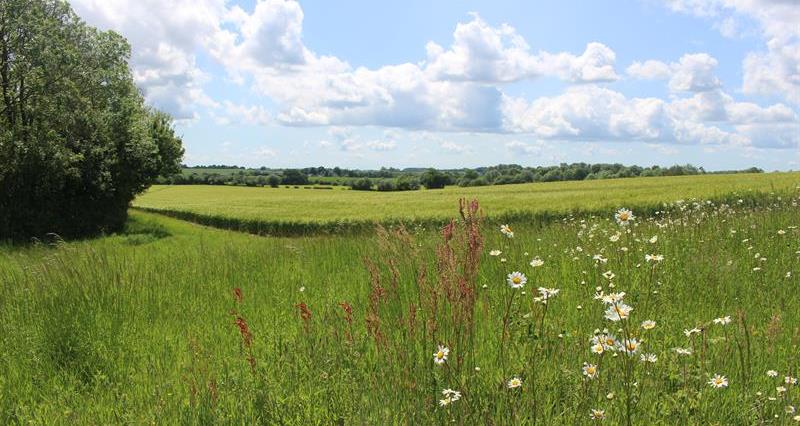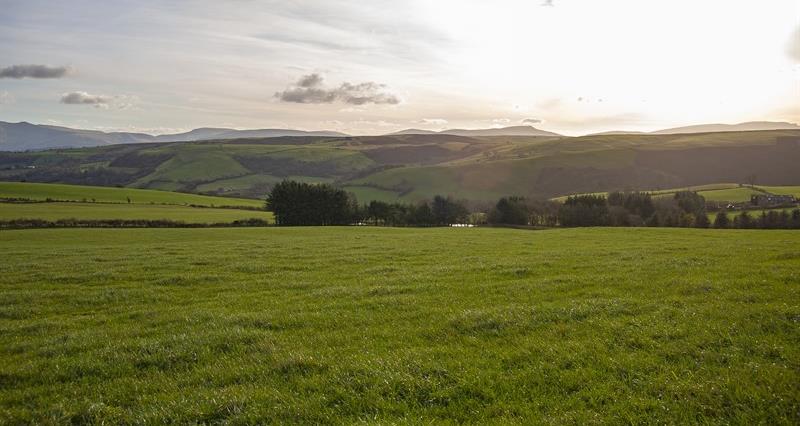The LR (Landscape Recovery) scheme is one of the Environmental Land Management schemes. It funds landscape scale projects through bespoke, long-term agreements that extend beyond 20+ years.
LR aims to support large-scale land-use change for the long-term with funding from public and private sources, producing environmental and climate outcomes through habitat and ecosystem restoration.
Landscape scale projects using public and private funding is a new approach. The scheme will develop and test how to deliver and administer such innovative schemes.
Who is eligible for Landscape Recovery?
All land managers and landowners are eligible to apply. It’s not restricted to farmers. Public bodies can apply where they are in a collaboration with private land managers.
The first LR rounds were open to any individuals or groups who wanted to come together to deliver large (500-5000ha) scale projects.
Land in an existing scheme can be included, although Defra will not pay for the same activity twice.
When will Landscape Recovery be available?
Defra is developing LR, learning from the first two rounds. We expect further rounds calling for bids during 2024.
Round 1 projects
Defra approved 22 pilot projects for the first wave of development. Together, the projects aimed to restore nearly 700km of rivers and protect and enhance 263 species across over 40,000 hectares.
Round 2 projects
Defra approved 34 projects on the second wave of Landscape Recovery. The focus of this round is net zero, protected sites, and wildlife-rich habitats. Together, the projects involve more than 700 farmers and landowners to support more than 200,000 hectares across England. The aim is to restore 35,000 hectares of peatland, create over 7,000 hectares of woodland and benefit 160 SSSIs.
How are pilot projects selected?
Defra and a panel of experts selected projects based on criteria including:
- feasibility and cost
- environmental benefits, carbon and climate resilience
- social impact and community engagement
- impact on food production
Will Defra accept multiple applicants for one project?
Defra are expecting a single applicant for the project who can demonstrate sufficient management control, with agreement of participants, to deliver the project. An agent or project manager can apply on behalf of an applicant or group.
Applicants will need to confirm they have the support of the landowners and tenants from the project area.
Can land in an existing agri-environment scheme be included?
Land in an existing scheme can be included, although Defra will not pay for the same activity twice. Defra will develop and test the process for exiting Higher Level Stewardship and Countryside Stewardship agreements early – without penalty – so they can enter Landscape Recovery.
How long is an agreement?
Agreement length will be bespoke to the project. The expectation is they will be 20 years plus in length to deliver the environmental outcomes desired.
Defra will look for long term safeguards to protect the land into the future, which could last beyond the length of the funding agreement e.g., conservation covenants or designations.
How will projects be developed?
Recognising the complexity of these types of projects Defra are taking a staged approach to project development.
The successful pilot projects go into a development phase, which could be up to two years, before moving on to project implementation. Defra will provide funding to support projects to prepare for delivery.
Activities could include feasibility studies, local stakeholder engagement, obtaining consents, monitoring and evaluation plans. Applicants will need to develop a costed delivery plan. The process will involve the development of bespoke funding arrangements with Defra including negotiating payment rates and securing private funding.
For various reasons not all projects will make it through to implementation. Defra will direct these projects to alternative funding.
What is the funding for project delivery?
Defra will not fully fund project delivery. Defra want the projects to benefit from private funding alongside public funding from government.
What are the payment rates?
As part of the process Defra will be looking at the funding arrangements to ensure ‘payment structures should provide a steady and reliable income stream for land managers’. The delivery agreements will be bespoke and negotiated during project development.
Defra will benchmark payment rates against other government schemes to ensure payments offer value for money. The costs will be funded by a mixture of private and public funding.
How is the scheme administered?
Applications are made to Defra with the Environment Agency and Natural England entering into the Agreement with Applicants.

